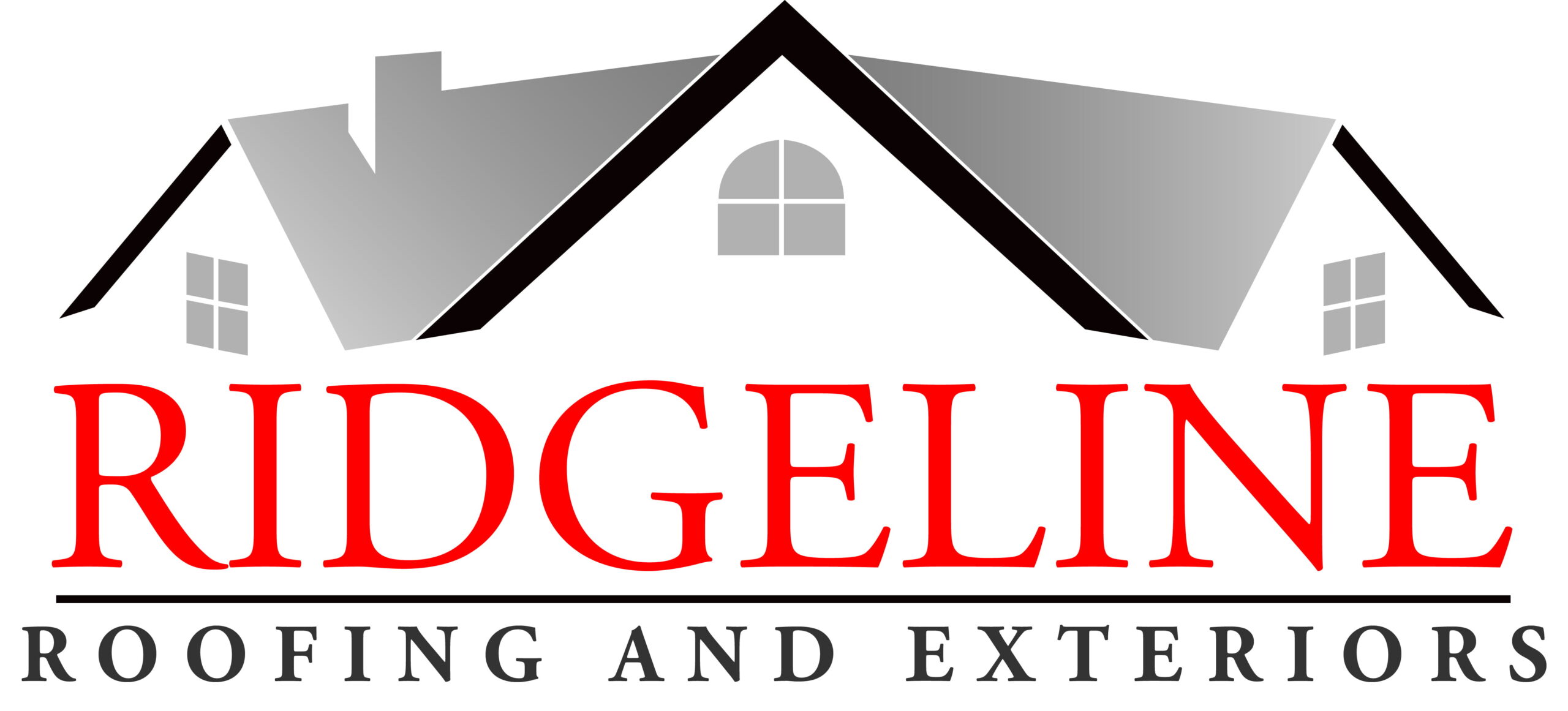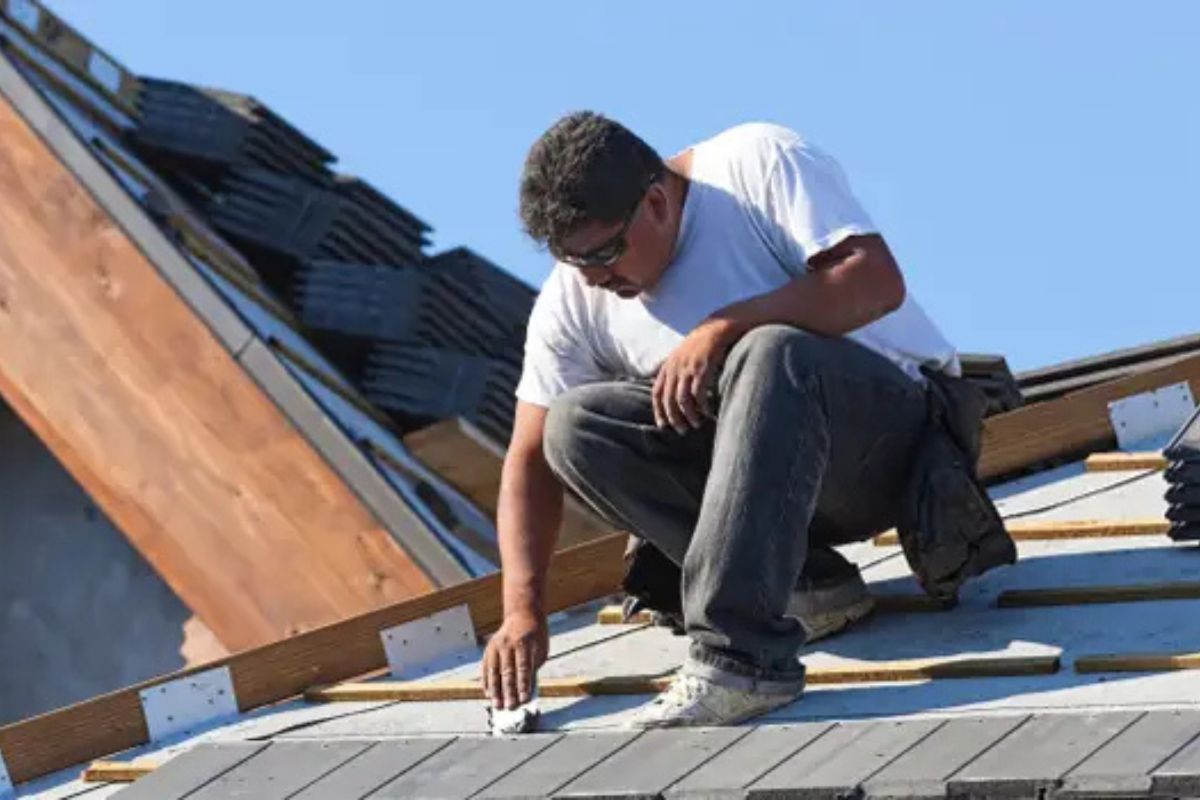The best way to finance a new roof depends on your credit score, timeline, and loan amount needed. Home equity loans offer the lowest rates for homeowners with good credit. Personal loans provide fast approval within days. Contractor financing gives convenient one-stop solutions with promotional rates.
How Much Does Roof Replacement Cost in 2025?
Roof replacement costs $9,000 to $18,500 for a typical 2,000 square foot home. Material costs increased 15% since 2022 due to supply chain issues and higher labor rates.
Asphalt shingles cost $7,500 to $16,000 for complete replacement. Metal roofing ranges from $14,000 to $24,000. Slate roofs can cost $24,000 to $40,000 for premium installations.
Cost factors include roof size, complexity, material selection, and geographic location. Coastal cities charge 15-20% more than inland areas. Complex roofs with multiple angles cost more than simple designs. Structural repairs add significant expense to the total project cost.
What Are the Best Roof Financing Options?
Home equity loans, personal loans, and contractor financing are the three most popular roof financing methods. Each option serves different credit situations and timeline needs.
Is a Home Equity Loan Good for Roof Financing?
Home equity loans offer the lowest interest rates for roof financing, typically 6-10% APR. You borrow against your home’s equity with fixed monthly payments over 5-30 years.
Home equity loans provide the lowest available interest rates because your home serves as collateral. Interest may be tax-deductible when used for home improvements. Large loan amounts up to 80-90% of home value are typically available.
Requirements include significant home equity built up, good credit score above 660, and stable income history. Your home serves as loan collateral, which creates risk if payments are missed.
Approval takes 2-6 weeks due to appraisal and underwriting requirements. Closing costs and appraisal fees apply. Your home faces foreclosure risk if you cannot make payments.
Are Personal Loans Fast for Roof Financing?
Personal loans provide roof financing within 1-7 days with no collateral required. Interest rates range from 6% to 36% based on credit score and income.
Personal loans offer fast approval and funding without using your home as collateral. Flexible loan amounts from $1,000 to $100,000 accommodate different project sizes. Fixed rates and payments provide predictable monthly costs.
Emergency roof repairs benefit from personal loan speed. Borrowers without home equity can access funds quickly. Those avoiding collateral risks prefer personal loans over secured options.
Higher interest rates than secured loans increase total costs. Shorter repayment terms of 2-7 years create higher monthly payments. Interest payments are not tax-deductible like home equity loans.
Does Contractor Financing Work for Roofs?
Contractor financing offers convenient roof financing directly through roofing companies. Many contractors partner with lenders to provide on-site loan applications and instant approvals.
Contractor financing allows you to apply during your roof estimate appointment. Approvals often happen within minutes of application submission. Promotional rates like 0% interest periods reduce costs for qualifying borrowers. Fair credit scores often qualify when bank loans might not.
Loan amounts up to $65,000 cover most residential roofing projects. Twelve-month interest-free options help manage cash flow. Extended terms with competitive rates provide flexibility for larger projects.
Financing options are limited to specific contractors who offer these programs. Promotional rates may expire after introductory periods. Long-term costs may exceed traditional bank loans after promotional periods end.
What Government Programs Help Finance Roofs?
Federal and state programs provide roof financing assistance for qualifying homeowners. These programs focus on low-income households, rural areas, and energy efficiency improvements.
USDA Rural Housing Repair Grants
The Section 504 program provides up to $10,000 grants for roof repairs in rural areas. Grants are available for homeowners 62 and older who meet income requirements.
Eligibility requires age 62 or older for grant qualification. Rural area residence is mandatory for program participation. Income must fall below 50% of area median income levels. The property must serve as your primary residence.
Weatherization Assistance Program
The Department of Energy’s program covers roof replacements that improve energy efficiency. Eligible households must earn 200% or less of federal poverty level.
Priority goes to elderly households, families with children under 5, and disabled household members. High energy usage homes receive preference in program selection. Roof work must demonstrate energy efficiency improvements to qualify for funding.
State-Specific Roof Programs
Many states offer roof financing programs for disaster-prone areas. Alabama provides $10,000 for FORTIFIED Roof standard installations. California allocated $50 million for fire-resistant roofs in wildfire zones. Florida funds hurricane mitigation programs for impact-resistant roofing. North Carolina offers $6,000 for qualifying installations through commercial roofing and residential programs.
When Does Insurance Cover Roof Replacement?
Homeowners insurance covers roof replacement for sudden damage from storms, fire, or vandalism. Normal wear and tear is not covered by standard policies.
Storm damage from wind or hail qualifies for insurance coverage. Fire damage from lightning or electrical issues is typically covered. Fallen tree damage during storms receives coverage. Vandalism damage qualifies under most standard policies.
Normal aging does not qualify for insurance coverage. Poor maintenance issues are homeowner responsibility. Gradual leaks from wear and tear are excluded. General deterioration over time is not covered.
Filing claims requires documenting damage with photos immediately after incidents. Contact your insurance company within 24-48 hours of damage discovery. Professional inspections verify damage extent and causes. Weather-related proof from local meteorological services supports claims.
How Do Cash-Out Refinances Work for Roofs?
Cash-out refinancing replaces your current mortgage with a larger loan, giving you cash for roof repairs. This option works best when current mortgage rates exceed today’s rates.
Cash-out refinancing provides the lowest possible interest rates because it replaces your primary mortgage. Long repayment terms up to 30 years reduce monthly payments. The process may reduce your overall monthly housing costs if rates have dropped. Large loan amounts based on home value accommodate expensive roofing projects.
The application to closing process takes 45-60 days on average. Home appraisal is required to determine current property value. Closing costs apply just like original mortgage transactions. New mortgage terms begin after closing completion.
This option works best for non-urgent roof projects where timing flexibility exists. Homeowners with higher current mortgage rates benefit most from refinancing. Those wanting the lowest possible monthly payments prefer this extended-term option.
What About Credit Cards for Roof Financing?
Credit cards work for small roof repairs under $5,000 but carry high interest rates for larger projects. Some cards offer 0% promotional periods for new purchases.
Credit cards provide immediate funding without application processes. Rewards points or cash back programs add value to purchases. No separate loan applications or approval waiting periods are required.
High interest rates after promotional periods increase total costs significantly. Lower credit limits restrict use for major roofing projects. High balances can hurt credit utilization ratios and credit scores.
How Do You Choose the Right Roof Financing?
Choose roof financing based on your credit score, timeline needs, and loan amount required. Compare total costs, not just monthly payments.
Excellent credit scores above 750 qualify for home equity loans with the lowest rates. Any financing option is typically available to borrowers with excellent credit. Good credit scores from 650-749 should compare multiple options carefully. Contractor financing often provides competitive terms for this credit range.
Fair credit scores from 580-649 find contractor financing most accessible. Government programs may provide assistance for qualifying situations. Poor credit below 580 limits options to contractor financing or co-signer arrangements.
Timeline Considerations
Immediate needs within 1-7 days require personal loans, contractor financing, or credit cards. Projects that can wait 2-6 weeks allow time for home equity loans or government programs. Non-urgent projects over 45 days enable cash-out refinancing research and comprehensive program comparison.
What Mistakes Should You Avoid?
Common roof financing mistakes cost homeowners thousands in unnecessary fees and interest. Avoid these expensive errors.
Never rush into financing without comparing multiple options. Get quotes from 4 or more roofing contractors for accurate project costs. Compare 3 or more financing options for the best terms. Calculate total costs over the loan term, not just monthly payments.
Watch for promotional rates that expire after introductory periods. Prepayment penalties can cost hundreds when paying loans early. Variable rates may increase significantly over time. Required insurance fees add to total borrowing costs.
Home equity loan interest may qualify for tax deductions when used for home improvements. Personal loan interest does not qualify for tax deductions. Consult tax professionals for specific advice about your situation.
How Can You Strengthen Your Application?
Improve your financing approval odds by boosting your credit score and gathering required documents. Lenders approve applications faster with complete paperwork.
Pay down existing debts to improve your debt-to-income ratio. Make all payments on time for several months before applying. Check credit reports for errors and dispute any inaccuracies found.
Gather recent pay stubs from the last 30 days. Collect tax returns from the previous two years. Bank statements from the last 3 months show financial stability. Current mortgage statements demonstrate payment history.
Consider exploring financing options that match your specific credit situation and timeline needs.
Final Thoughts
The best roof financing option balances your credit situation, timeline, and total cost needs. Home equity loans provide the lowest rates for homeowners with good credit and equity. Personal loans offer fast approval for urgent repairs. Contractor financing delivers convenience with promotional rates.
Don’t delay needed roof repairs due to financing concerns. Leaking roofs cause expensive water damage and mold problems. Multiple financing options exist for almost every homeowner’s situation.

